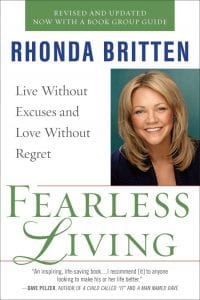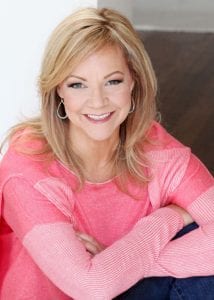I am excited to welcome to the show, Justin Pogue. He is an author and real estate consultant based in San Jose, California. Fox News, Mercury News, SFGate, Realtor.com and ApartmentTherapy.com have all featured his insights for the benefit of their audiences. He got his start in real estate by purchasing properties on the lands available list in the State of Florida. Since 2003, he has developed and managed apartments and rental homes across the United States. Justin holds a degree in Economics from the Wharton School of Business at the University of Pennsylvania, as well as an MBA from the Darden School at the University of Virginia. Justin, how are you? Welcome to the show.
I’m great. It’s fantastic to be here.
He lives in San Jose, but there are fires in San Jose. He happens to be in Texas. I’m glad we’re chatting. Justin, give us a brief high-level story. How did you get into real estate?
Real estate wasn’t my original plan. I was in graduate school, getting my MBA, planning to go into management consulting, got the interview set up, got the internship all lined up, twelve weeks. I was all set and the dot-com bubble burst. The bottom fell out of that industry completely. Now it’s like, “What do I do next?” I’m trying to figure out what I want to do next. My mother who had been a real estate agent back in the ’80s, although it never took off as a career for her, she was learning about tax liens and how do you acquire property via tax liens. Florida was a good state to do that in. We took a road trip from California to Florida. We’re going between the different county recorder’s offices. We ended up purchasing three properties via the tax lien method, clearing the title, and flipping those to developers. That’s how I got started in the real estate industry.
That’s interesting that just like that, it happened.
She’s like, “You’re trying to figure out what you want to do next. Let’s look at some properties.” We went to look at a few, and we looked at a few more, and then we got one off of the lands available list, and it snowballed from there. We eventually got up to a total of 72 units that I was managing that were down in the Southeast of the United States.
That’s an amazing story. One of these things that I love about this story is the way that you took a bad situation. The bottom fell out of our markets and turned it into a huge success for yourself. I think a lot of people during that time. I remember I was in it. I lived in San Jose and we were in the heart of that complete bust. I remember the pain that was going on around then. Kudos to you for taking the bull by the horns and making something good happen.

Rental Properties: Networking is a huge factor in real estate investing, property management, and business in general.
It’s a real lesson of the value of resilience and looking for other opportunities that you can get involved. Having that lesson in my back pocket from that period in time has helped me in other periods of time moving forward from there to ’08 and other situations even beyond that.
I’ve been there too. It’s amazing. I know that you focus a lot on renters, which is a very interesting perspective. We haven’t had anybody come on the show talking about the renter’s perspective. There are a lot of ladies that are renters. My first question for you is if someone is renting and they want to start investing, how do they start moving towards that path?
It all starts with education. You go down to the bookstore and you start looking at real estate books about investing. Start exposing yourself to the topics, the concepts, different case studies, that kind of thing. That’s a great place to start. Another step would be to go to local real estate investment clubs. Start networking with people who are doing what you are potentially going to do in the future. Ask them all the questions that you have. They’re more than happy to answer those questions. That’s why they’re part of the club. Networking is a huge factor in real estate investing and property management, and business in general. Understand that no matter how many books you read, no matter how many people you talk to, no matter how many seminars you go to, the butterflies in your stomach are not going to go away until you pull that trigger on that first property and then you’re in it.
I want to talk a little bit about this networking piece. We’ve had people come on the show talking about networking. My ladies hear me say this until I’m blue in the face. I’m sure they’re sick of hearing this. It’s that this is a people business. The numbers have to work, but it’s a people business. One of the things that you said was emphasized that again in real estate, but in any business. You have a degree from the Wharton School of Business. I have a degree from the Haas School of Business at UC Berkeley. We understand what we get taught in business school. Here’s the primary thing that we get taught in business school, in addition to finance, accounting, and all of those interesting things. The big thing that we learn in business school, and ladies you’re getting it right here, is learn how to network. Any business in the world cannot be successful if you cannot get along with people, inspire, engage and negotiate. That’s how we build businesses. That’s how we make the world different. That’s how we change lives.
Part of what trips people about networking is, “I’m going to go in and I’m going to talk to these people. I have no idea what I’m going to get out of it or what the payoff is going to be.” For some people, that scares them off like, “I’m investing this time, but I don’t know what I’m going to get for it.” That is the beauty of networking. You don’t know who the person you’re talking to might know. You don’t know what ideas they might share to inform what you’re doing. You don’t know what ideas you might be able to share to inform what they’re doing. Too often many people think, “I don’t have any ideas or concepts in my head that could possibly help this person. They’re so successful.” Remember, you have a different perspective than they have because you have a different experience than they have. There might be some nugget in your experience that can help propel them forward. When that happens, they will remember that. When you call them with a question or a concern later on, they will be more than happy to help you. That’s how networking works, even though you don’t know quite what you’re going to get out of it before you start.
Especially in something like this, if you have an agenda when you go into networking. I know there are a lot of people that teach about networking. You have to know what questions you’re going to ask. Have a plan because for a lot of people, that makes them much more comfortable to have the plan. The truth is a lot of times when you go in fully prepared like that and you appear to have an agenda, it tends to be a turnoff. If that’s the best that you can do, then you do that. If you can stay open to what the possibilities are for what you can learn, who you can meet, and what you can offer, then you’re not caught up in your own head. You are much more open to having real conversations, to showing an interest in somebody else, rather than filling their ear with everything you’ve decided you have to say.
Your skills at networking will improve over time. I was not perfect coming out of the gate in networking by any stretch of the imagination. The good news is you don’t have to be. Go out there, make an effort, and it will benefit you over time. You will see.
Let’s talk about how you had the confidence to finally pull the trigger the very first time.
It’s interesting because the very first time we’re looking at buying properties for tax liens. What that means is every year the county collects property taxes. If those taxes on a particular property are not paid, what the county does is they auction off their lien to someone else, a bank, a private investor or what have you. They need the money to pave the roads, pay for the schools, and all the stuff that the county does. Depending on the rules of the state, once you control a certain number of years of those liens, you can then take that interest, jump through some legal hoops, and gain ownership of a property. Typically, that property is going to be vacant land, especially if it’s in an urban area.
Sometimes it can have structure on it. In our case it was vacant land. Getting back to your question, since our investment was only the back taxes and not the full market value of the property, that made it a lot easier to pull the trigger and get started. Something else that made it easier in my situation is I was working with a trusted partner. My mother and I were the ones that were going on this road trip and this experience together. Having a partner can be helpful. It gives you somebody to bounce ideas off of, and to check the concepts that you have floating around in your head. Sometimes the ideas in your head sound great. Until you give them voice and you start working them back and forth and then, “Let’s tweak it here. Let’s tweak it there. Maybe it can be great.” I also felt I was ready to take a chance on this. I was ready to try something. This was early 2000s and you’re seeing a lot of people who have much less experience than I had become multimillionaires, investing in real estate and other things. I’m like, “I can do that too. I can take a shot at this and see what we can create.”
How would you translate that to someone who doesn’t have a specific thing that they’re looking at? They’re interested in, “I want to invest.” This is the thing that I get so much for my ladies is, “I don’t even know where to start.” I’m promoting education, listen to podcasts, read some good books, but there is that moment where you have to pull the trigger. It’s scary but it’s exhilarating too once you do it, but it’s getting there. What would you give the ladies advice around that?
Investing is this huge arena and there are many different types of investments that people can do. It’s important to understand who you are as an individual, and what you want out of this investment experience. Let’s take a few examples. You could invest in the stock market. You could buy some index funds. Understand that when you do that, you have no control over what any of these companies do. If they go out and buy a private jet, you can’t call up the president of the company and say, “I don’t think that that was a wise use of the company’s funds. You should return it.” They’re not going to take your phone call. You’re investing in businesses and they’re out there earning money. The stock price will hopefully go up over time and there may be some dividends and that kind of thing but understand there’s a level of control that you do not have in that experience.
When you look at real estate, when you buy a property, you have pretty much 100% control over that property. What improvements are you going to make to that property? What particular clientele you’re going to target that property towards? Are there any additional amenities that you want to add to the property? Do you want to invest in a property that’s near a community park? Do you want to invest one that’s maybe near a recreation center, or near that new restaurant that got five stars, and whatever that review was? You’re in charge of those things, which gives you total control. However, there’s more of a personal involvement in that than in the stocks. The stocks, you can just buy and forget about it. Real estate needs to be managed and it needs to be nurtured. Even if you’re going to hire somebody to manage that, you need to manage the people who are managing, and be aware of what they’re doing and what their relationships with your residents are, and who your residents are.
Those are the two ends of the spectrum. There are other things that people could invest in. The idea is if that level of control is something that you want, you’re not going to get it in stocks. You’re going to get it in real estate and starting your own business, which quite frankly, investing in a property is starting your own business. Know what level of control you want and what level of involvement you want to have in your investment. Those are two things that people starting out need to think about. This is all part of setting up your mindset before you even get started. That’s going to be the foundation for having a successful business regardless of what you invest in.

Rental Properties: By having a great relationship with renters, landlords can get the most out of their investment with the least amount of stress.
When you started in real estate, did you feel like you were prepared for all the things you were going to experience?
I thought I was prepared. I had read a bunch of books. I had gone to I don’t know how many different seminars. They talked about property appreciation, forced appreciation, residual cashflow, and the depreciation you can take. I thought I was ready. What I didn’t know is that a lot of those seminars, they leave out a lot of information. There’s virtually no discussion on how a property operates. How is a property managed like boots on the ground, day-to-day basis? What does that process look like? If it gets to this point, what does an eviction process look like? What are the steps involved in that? What are the steps involved in marketing your property to attract quality renters to it? What do you do once people start showing up? How do you vet those people? They don’t go into any of that.
They present you with all the sexy, seductive stuff. They are then off to the next city to sell seminars to somebody else. I didn’t know that, like most investors who are starting out don’t know that. I had to learn all of that stuff. It’s unfortunate the lack of education on the landlord side because people are making investments. They’re taking their life savings and they’re putting it into an investment. That lack of education that’s not provided by most of these seminar services is a disservice. A lot of people are learning by the seat of their pants. That also points to why those local real estate investment clubs are important because they will help fill in some of those blanks for you.
You focus on renters and educating renters, and that sort of thing. I focus on that piece. Much of my coursework, the Blissful Investor Masterclass is all about being a landlord and filling in all of those pieces that nobody else talks about. I found the same thing. I had to create my own systems. I had to work my own mindset. I had to know how I was going to be thinking when I walked in to talk to a tenant that was not happy because my mindset was going to change the entire conversation. Those things are important and nobody talks about it. Your network is going to make a big difference. There is some education out there on that. There are many investors that have found out that it’s not that sexy and awesome. Tell us a little bit about the challenges you’ve had to face along the way.
This was in 2007. This particular property was a 32-unit garden-style walk-up property. It had a drainage ditch canal behind the building for stormwater and that kind of thing. One day during the summer, it rained all day. That canal was filled up with water. It got plugged up down the line somewhere. It flooded the first floor of both buildings in the apartment building. I’m standing on the second floor watching the water rise. I’m like, “Those seminars did not cover this.”
It’s my first flood. I have no clue what to do. My first phone call was to one of those flood recovery services. I was able to get somebody on the phone. They said, “Yes, we understand the situation.” They were going to charge $2,000 per apartment to come in, tear everything out, and sanitize what was left. That’s 32-unit apartment buildings, 16 apartments have been flooded. Sixteen apartments times $2,000 is $32,000. That’s a hole in my budget. I cannot afford because I was not planning for a flood.
What ended up saving me was not panicking. We had a vendor who was our carpet cleaning vendor, but they also had water extraction equipment. I talked to them about how to deal with the flood, and how can we get the carpets out, and that kind of thing. Talking with the vendor, we put together a plan to get the carpet out, get the apartments cleaned up, get things sanitized. We go in and put back clean carpet. It was 3 inches of water. It wasn’t waist deep. It doesn’t have to be that deep to ruin your day. We were able to get those apartments back together in livable condition in three days. The only person who called me to thank me was the mother of one of my residents. She was happy her son did not have to come live with her.
Was that something not covered by insurance?
You can get insurance to cover that, but insurance comes later. It doesn’t cover you in the moment, in the situation. It all comes afterwards, assess, take pictures, and all of that. Meanwhile, I’ve got sixteen families that were displaced who are coming to me like, “What do we do?” That’s a part of property management that was never covered, let alone the flood and mitigating the damage and all of that. The fact that sixteen families are looking at you like, “What do we do now?” You can’t say, “I don’t know.”
“I’m going to call insurance and find out.” I see what you’re saying. Did you never get reimbursed for the insurance because they didn’t get to come out and take pictures and stuff? Tell me a little bit about what happened around that.
What happened around that was the area was determined a disaster zone. FEMA did come in and they provide loans and assistance to the people who were affected by that flood. What was most interesting about that is we had this conversation with the government about applying for the loans, and what information you had to submit, and all of that. We got down to the approval part. They said, “This is what we’ll approve you for. This will be your monthly payment on that disaster loan.” I looked at that and I said, “I’m not comfortable with adding that payment into my budget. What if we take half of the loan amount?”
They said, “The payment would still be the same,” which I thought was interesting because every other loan I’ve ever been involved in on the planet, how much you borrow affects the monthly payment for that particular loan. In this case, they said, “Your payment will be the same. We determined what we think you can pay. That’s what your loan payment will be based on the information that you’ve given us. That was an eye-opening experience for me because I had never dealt with a loan like that. We decided to pass on that loan for that reason. It wasn’t the only source of funds to get us back to where we needed to be, and to make us whole and all of that. Those were the reasons why we went ahead and passed on that loan. It was interesting to have that experience of going through that process, and then getting to that end result where they determine what you pay, and push you out of determining what you pay. You either get to say yes or no.
You said there were other sources of funds to make you whole. What other stuff did you do? It’s interesting to hear. You’re right. Nobody talks about this and I’ve never heard of this. Tell me what those other things were.
This is opening up a lot of different topics. First of all, when you acquire a property and you get your mortgage, the bank may or may not require you to get flood insurance, depending on where the property is located. In this case, the bank did not require us to get flood insurance. Don’t let the bank determine whether you get flood insurance or not. This is a lesson that we got out of this experience. You need to look at your own situation and determine whether you want flood insurance or not because you’re the one that’s involved in the investment. The bank is involved but what I’m saying is don’t let the bank determine what you need. You have to go through it yourself. In this case, we did not get flood insurance.

Rental Properties: Determine the level of control and involvement you want to have in your investment.
What we ended up doing was pulling from some of our reserve funds to recover and recoup, which brings up the lesson of having reserve funds for things that are unanticipated. The other thing that turned up to be important was the value of your relationship with your vendors. I was able to call our carpet cleaning service. This is 7:00, 8:00 at night. This situation has affected more than just us. They have other customers calling them and they answered the phone when I called. The only reason that happened was because of the relationship that we had with them. If we hadn’t had that relationship, we would have waited until tomorrow or the day after for them to get back to us. The relationship with your vendors is key, and they are a fantastic source of information, in this case, related to flooding.
Also, think about, what needs to go back into your property? We’re tearing out carpet and pulling out baseboard. What needs to go back into your property? Where can you source those items from? What kind of financing you might be able to get from those stores or vendors on those cabinets, carpet, or whatever it is you’re purchasing. Especially if you have to purchase things in bulk, which for sixteen apartments, I was. All of those things go into this recovery process. That’s not to say that everybody’s going to have this type of experience. There’s going to be something that occurs relative to your investment that you weren’t prepared for. Relationships with your vendors, being inquisitive and curious enough to ask questions so that we can come to some reasonable solution and plan, and being able to communicate that plan to your resident, those are huge lessons out of that experience for me.
I appreciate that conversation. There aren’t many people that come on this show and talk about the details of when something goes wrong, the process of how you pull yourself out of that. That was valuable.
That was one thing that went wrong.
We’ve all got our stories. The big thing that I want the ladies to take away from this is things happen. They’ve happened to a lot of us. Justin’s been able to handle it. I’ve been able to handle it. You’ll be able to handle it. Things come up in life and there’s nothing you can’t handle. You just have to not freak out. You create the bliss practices that I talk about all the time. They get you centered and grounded so that you can look at things rationally, start to problem solve, and start to take action rather than starting to freak out, freezing, and making bad decisions. There isn’t much that will be handed to you that you can’t handle. You do need to have your bliss practices in place so that you can keep your head around it when things happen.
There are millions of landlords before you that have handled all of this stuff. You’re not alone. If you have a network, not just with your vendors, that you’ve created, whether you’re going to meetups, REIAs, or whatever real estate organizations, having those people will help to shore you up also because you can have these conversations. You have a larger network of people that can help you through problems and give you vendors.
Half the battle is knowing who to call and what question to ask.
You’re a landlord and you wrote a book for renters. Why would you do that?
Rental Secrets came out of an experience I had in the bookstore. I’m sitting in the bookstore and I’m looking at the real estate section. I see books there for owners, managers and investors. I’m like, “There’s a group that’s missing here.” It’s the 43 million households that bring half a trillion dollars with a t to the table every year in terms of their rent payments. It struck me as odd that there are all these guides out there for buying a car or a computer but not for renting, which is what people are spending a third or more of their income on every month. It struck me that in writing books for landlords, owners and property managers, it’s a very top-down approach, as opposed to a bottom-up approach, which is the perspective that I take in my book. The other reasons why I wrote the book is because if you look in the media, the relationship between landlords and renters is broken and dysfunctional. If you’ve ever watched one of those judge shows on television and there’s a landlord-tenant dispute, typically there’s a chair that flies across the room during the proceedings at some point.
It’s a dysfunctional relationship. In many cases, it’s leading to bad governmental policy decisions. It’s leading to a lot of fear and frustration among renters and landlords. The idea is if we can get some education and understanding going on amongst renters about what landlords are dealing with, we can hopefully move towards getting better policy paths. We can hopefully move towards having better relationships between renters and landlords. We can do a way with this myth that renters have in their heads about landlords. The myth is that the landlords are sitting on their yacht in the Caribbean with their umbrella drink, watching the sunset in the background. That’s not what being a landlord is for the most part. I use that picture in my presentation.
People think that if you own property, you’re rolling in the dough. It is possible that your landlord may have a high net worth. What happens with a lot of landlords is that they’re net worth rich and cash poor. They are property rich, cash poor because running these properties, you suddenly have a $32,000 expense. Who can even come up with that? These things happen to landlords and we want to take care of our tenants. We end up in these sticky situations. You’re right and I love what you were talking about this top-down approach versus the bottom-up approach. It’s about respect.
A lot of the stories and the dramatization of what these relationships look like screw up the respect for one another. The reality is there are a lot of landlords that are not responsive. I know that there are a lot of tenants that are horrible to houses. These things all happen, but those are the exceptions more than the rules. Those are the things that are highlighted because they’re dramatic. It’s not a good story that everything is great, unless you’re on this show, I like to say that a lot, “Everything is awesome.” That doesn’t make for good television or good manners.
It makes people frightened to invest in property when they see that, “Why would I want to get into that relationship?” You’re right when you say that a lot of landlords end up being of high net worth, but they’re not necessarily cash rich. They are all tied up in terms of the equity in the property. When you want to go out on a Saturday, you can’t walk through a wall of your building and say, “I’d like $20 please.” It doesn’t work that way.
If we’re providing you a home, we probably don’t have cash. That’s not totally true, but that’s one way to think about it. It’s a roof over your head.

Rental Secrets: Reduce Your Rent – Get Better Value – Create Quality Communities
It gets back to this concept of once you become a real estate investor, you’re in effect starting a small business. All of the issues and challenges that come around that concept, you’re now going to be exposed to. The other picture that I have in my presentation is sometimes being a landlord can feel overwhelming. It can feel like you’ve got one hand above the surface of the water and you’re trying to stay afloat. Especially if you don’t have a network or if you’re not plugging into a lot of these different resources that we’ve been talking about.
That’s not to scare everybody away. That’s not the experience for everybody. I’ve been in real estate for many years, and there have been those moments and they happen. They’re going to happen in life. They’re going to happen in your marriage. They’re going to happen with your children. They’re going to happen with your dog. Anything that you care about, these things happen. It’s a part of life and reality. It’s not a reason to stop living. It’s not a reason to not invest. It’s a reason to have that emotional and relationship tools to help you get through it. This has been a fun conversation. It’s a different one from anything I’ve had on this show. Thank you for that.
In EXTRA, we’re going to talk about negotiation. Part of what Justin talks a lot about in his book is the negotiation of renters with their landlords like, how to get better rents? How to negotiate your lease? He’s going to be talking about negotiation skills. What I wanted to do because it’s such an important piece for everybody’s business, whether you’re a renter, a landlord, a business owner, a client or a customer, negotiation is a big deal. He’s going to be talking about how to maximize your negotiation skills with regards to being a renter and also, can anybody use it? We’re going to be talking about that in EXTRA. I’m excited about that. Before we go there, could you talk to us about how people can reach you, Justin?
My website is RentalSecrets.net. They can get more information about my book there. They can also reach out to me by personal introductory site, which is JustinPogue360.com.
Are you ready for three rapid fire questions?
Absolutely.
Tell us one super tip on getting started investing in real estate.

Rental Properties: If there is an understanding between renters and landlords, better policies can be created.
The super tip I would say that we’ve already touched on is those local real estate investment clubs, but I’ll add one little twist on it. Choose a club that is in the geography where you are investing, not necessarily a club where you live. They know who in the county departments to talk to, ask questions to, and who can get things done.
Thank you for that. What is one strategy for being successful in real estate investing?
My success strategy is you want to have great relationships with your residents. You screen them first, and then you maintain great relationships with them going forward, as long as they’re living in your property. Sometimes, even after they live in your property. Some of my residents I’ve kept in touch with. It will allow you to get the most out of your investment with the least amount of stress.
I always say that your tenants are going to be the biggest determining factor on how blissful your strategy or your business is going to be. For me, they’re everything and I feel grateful to have them in my world. The only reason they call me is to wish me Happy Birthday, Merry Christmas or Happy New Year. They don’t call me to bother me or to get more out of me, which is special. What is one practice that you would say that you do daily that contributes to your personal success?
It’s remembering who your target resident is, and understand that your investment property is not for you, it’s for them. Many people jump in and they’re like, “We’re going to remodel. We’re going to do this. We’re going to put marble in here.” That doesn’t fit your target market. You’re setting yourself up for failure, not necessarily because those aren’t nice things because they are, but the clientele you’re renting to is not going to value it the way you would. Keeping that in mind as part of every decision that you’re making relative to your investment property. It’s the actual tip that I would suggest.
Thank you for that. This has been a fantastic show. Thank you for all that you shared so far.
You’re welcome. It’s been fun.
Ladies, stay tuned for EXTRA. We’re going to be talking about negotiation skills as a renter and also business in general. Stay tuned for that. We’ve never covered this topic before. We’ve never covered topics that are renter-specific. I know a lot of you, ladies, are renters. This will be valuable for you. If you are subscribed to EXTRA, stay tuned. If you are not but would like to be, go to RealEstateInvestingForWomenEXTRA.com, and you get the first seven days for free. You can listen to EXTRA, as well as many others. See if it’s for you. If you want to stay on board, you can get subscribed. Otherwise, you can unsubscribe, no problems there. Thank you for joining Justin and me for this portion of the show. I look forward to seeing you next time. Until then, remember goals without action are just dreams. Get out there, take action and create the life your heart deeply desires. I’ll see you soon.
Important Links
About Justin Pogue
 Justin Pogue is an award-winning author and real estate consultant based in San Jose, CA. His services are sought after by property management companies, investors, and real estate consulting companies alike.
Justin Pogue is an award-winning author and real estate consultant based in San Jose, CA. His services are sought after by property management companies, investors, and real estate consulting companies alike.
FOX News, The Mercury News, SFGate, Realtor.com, and ApartmentTherapy.com have all featured his insights for the benefit of their audiences.
He got his start in real estate by purchasing properties on the Lands Available list in the state of Florida. Since 2003, he has developed and managed apartments, rental homes, and student housing across the United States.
Justin holds a degree in Economics from The Wharton School at the University of Pennsylvania, as well as an MBA from The Darden School at the University of Virginia. As a San Jose native, he also attended Bellarmine College Preparatory and the Harker School.
Love the show? Subscribe, rate, review, and share!
Join the Real Estate Investing for Women Community today:
To listen to the EXTRA portion of this show go to RealEstateInvestingForWomenExtra.com
To see this program in the video:
Search on Roku for Real Estate Investing 4 Women or go to this link: https://blissfulinvestor.com/biroku
On YouTube go to Real Estate Investing for Women
——————————————————
Learn how to create a consistent income stream by only working 5 hours a month the Blissful Investor Way.
Grab my FREE guide at http://www.BlissfulInvestor.com















 Justin Pogue is an award-winning author and real estate consultant based in San Jose, CA. His services are sought after by property management companies, investors, and real estate consulting companies alike.
Justin Pogue is an award-winning author and real estate consultant based in San Jose, CA. His services are sought after by property management companies, investors, and real estate consulting companies alike.